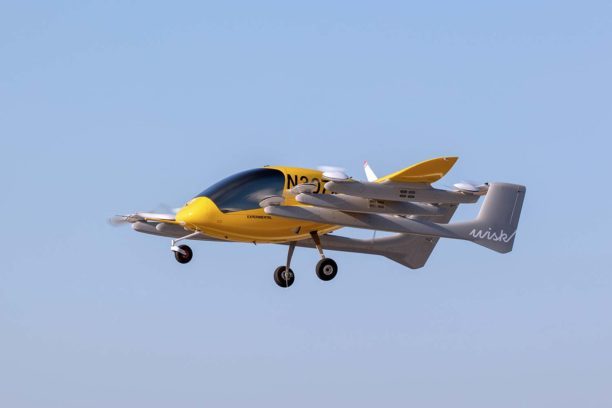What Progress Has Been Made on Air Mobility

 One of the world’s biggest air mobility events opened today in Amsterdam, as Amsterdam Drone Week kicked off. The event is uniquely global in nature, bringing stakeholders from around the world together to discuss regulations, operations, public opinion and integration.
One of the world’s biggest air mobility events opened today in Amsterdam, as Amsterdam Drone Week kicked off. The event is uniquely global in nature, bringing stakeholders from around the world together to discuss regulations, operations, public opinion and integration.


Jeffrey Vincent, FAA
This morning, keynote addresses brought aviation leadership from Europe and the US together to discuss what progress has been made on developing a regulatory and infrastructure framework for air mobility, as Jeffrey Vincent, the FAA Executive Director of the UAS Integration Office, and Michele Merkle, Director of the Air Navigation Bureau at International Civil Aviation Organization (ICAO), United Nations (UN), took the stage.
In his keynote address, Jeffrey Vincent said that the FAA was laser focused on “the nexus of innovation and safety.” His speech focused on the forward motion that the agency has achieved in regularizing flight beyond visual line of sight (BVLOS), developing a certification system for eVTOL aircraft, and enabling 3rd party services to develop a robust UTM framework.
BVLOS flight is a major roadblock for both small UAS and air mobility operations. Vincent pointed out the FAA’s recent shift to an “operations first” approach, granting waivers for specific types of operations such as drone delivery and inspections which could be easily copied by other companies. “We aim to create a drone ecosystem where operators can expand their operations… and reduce the regulatory burden,” he said.
Vincent stated that the FAA plans to issue a Notice of Proposed Rulemaking (NPRM) to regularize BVLOS flight this year.
The agency has also moved forward on certification of eVTOLs, Vincent said: saying that the FAA plans to certify its first eVTOL in 2025. While eVTOLs will first be required to operate like piloted aircraft, the FAA plans for a “rapid shift” to autonomous operations after certification.
Finally, Vincent address the need to develop the regulatory and infrastructure framework to support eVTOLs and air mobility: vertiports, charging infrastructure, and an entire system of unmanned traffic management (UTM) which will enable air mobility services. This massive shift will “require a whole of government approach,” he said. To develop these systems, the agency has collaborated with industry to develop a key site in North Texas: an operational test site which will help with the evaluation of deconfliction, drone-to-drone collision risk, and more.
Finally, Vincent emphasized that the development of a robust framework that enables air mobility will require a dynamic approach. “Our integration efforts will adjust as we learn,” he said.


Michele Merkle, ICAO
Michele Merkle focused on the opportunities and challenges of building a global regulatory framework for air mobility, from her perspective as a representative of the United Nations’ civil aviation authority.
Merkle points out that the European Commission forecasts a “vibrant future” – market predictions put the industry in the billions by 2035, and the sector is expected to generate millions of new jobs. For ICAO, says Merkle, unmanned systems also support the UN’s broader goals of providing effective humanitarian aid, disaster relief, and more.
Still, developing a global framework is challenging. ICAO has made significant progress towards the development of remote pilot aviation system standard: Merkle says “the basic building blocks are now available.” These building blocks include licensing, certication of aircraft, and certification of operators. ICAO ffers regulations and training courses, and has also developed an implementation package for ministries of transport and civil aviation authorities.
The ultimate goal for ICAO is a big one: the concept of worldwide interoperability for air mobility. While regions race to develop systems and retain a competitive advantage in the emerging industry, “We are ready to cooperate and collaborate,” said Merkle.
Read more:
Miriam McNabb is the Editor-in-Chief of DRONELIFE and CEO of JobForDrones, a professional drone services marketplace, and a fascinated observer of the emerging drone industry and the regulatory environment for drones. Miriam has penned over 3,000 articles focused on the commercial drone space and is an international speaker and recognized figure in the industry. Miriam has a degree from the University of Chicago and over 20 years of experience in high tech sales and marketing for new technologies.
For drone industry consulting or writing, Email Miriam.
TWITTER:@spaldingbarker
Subscribe to DroneLife here.

